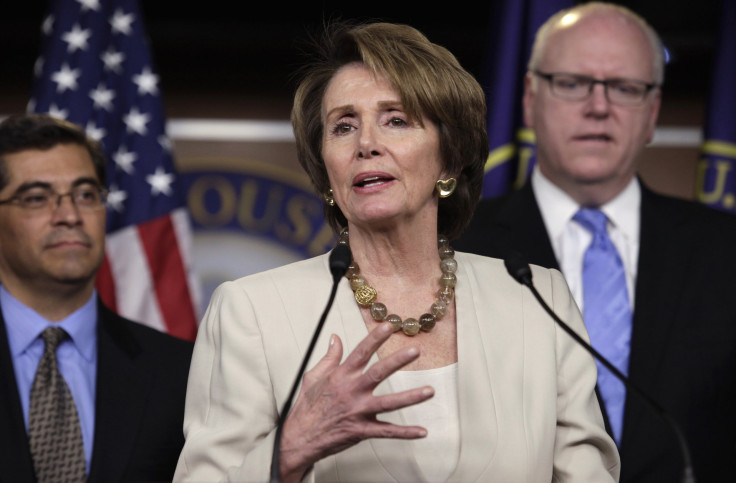Top Democrats Enter Net Neutrality Fray With Internet Slowdown Protest At Hand

Two of the most powerful Democrats in Washington have made efforts to look into the Federal Communications Commission’s net neutrality plan. That idea, which would allow Internet service providers to charge websites more to broadcast their content, has drawn fierce opposition from open Internet advocates and inspired Wednesday’s Internet Slowdown protest.
Senate Judiciary Committee Chairman Patrick Leahy (D-Vermont) has scheduled a hearing before the panel for Sept. 17, giving lawmakers a chance to examine the FCC plan that has backing from Comcast Corp. (NASDAQ:CMCSA), Time Warner Cable Inc. (NYSE:TWC) and Verizon Communications Inc. (NYSE:VZ). House Minority Leader Nancy Pelosi (D-California), taking it another step, called on the FCC to regulate broadband Internet as a public utility, a decision that would give ISPs less ability to dictate which sites enter into the "fast lanes."
Under the current system (the “net neutrality” or “open Internet” system) all websites are placed on equal footing. When an Internet user logs on to a homemade blog, for instance, Comcast must load that page as quickly as it would a website that puts more of a strain on its servers, like Netflix Inc. (NASDAQ:NFLX) videos.
When a January court ruling agreed that the FCC was out of its jurisdiction in forcing ISPs to keep this kind of open flow, the FCC announced it would create a new plan involving those “fast lanes.” Verizon and Comcast have portrayed the fast lanes as a benefit to the Web as a whole, yet Netflix and dozens of others have complained that they’ll have no choice but to pay ISPs more for the same service, a move that they said will ultimately hurt the consumer and end the spirit of rebellion and creativity that the Internet has fostered.
Leahy and Pelosi’s involvement heightens the debate in Washington as the FCC plan comes closer to being enacted. Leahy has said that the lingering notion of paid prioritization has forced legislators to get involved.
“Open Internet rules are the Bills of Rights for the online world,” Leahy said in a statement announcing the hearing, scheduled for two days after the FCC’s next deadline for public comments on the matter. “It is crucial that rules are put in place to protect consumers, online innovators and free speech.”
Separately, Pelosi wrote a letter Monday to FCC Chairman Tom Wheeler, a former telecommunications industry lobbyist, asking that the FCC prohibit any “fast lanes that would be open only to those firms large enough to pay big money.” She also called on the FCC to regulate broadband as a public utility, a proposal that net neutrality advocates have warned might be the only reasonable way of maintaining the current net neutrality rules.
© Copyright IBTimes 2024. All rights reserved.











